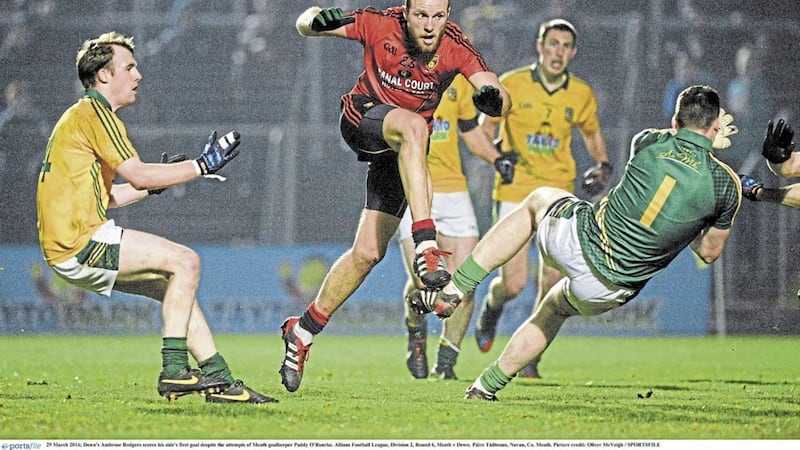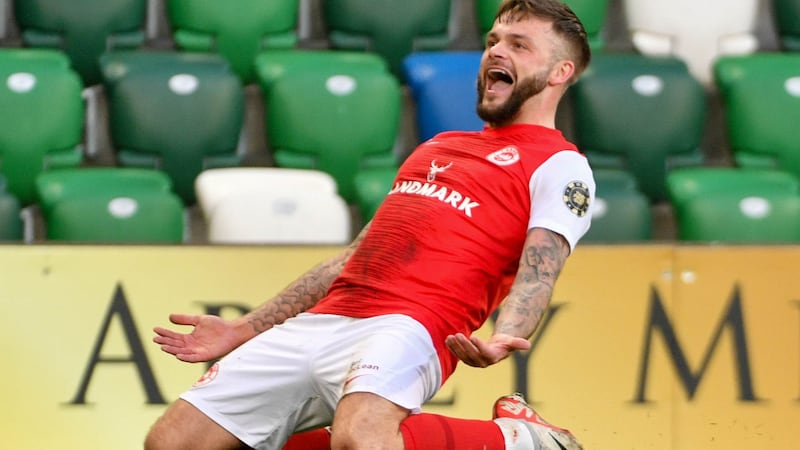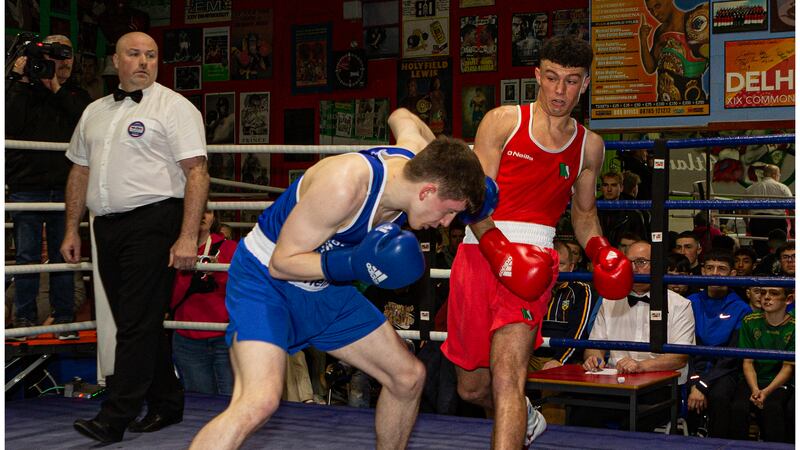THERE is a scene in The Departed when Leonardo Di Caprio’s character, an undercover cop, is ordered to see a shrink. He makes an excellent point about cops who see shrinks.
The patients (the cops) cry to the psychiatrist about shooting off their guns. Clearly, Di Caprio’s character has no time for the clinical process nor has any sympathy for the patients.
“What did they think would happen? – they signed up for the police force,” he protested.
He has a fair point.
At times, the negativity around inter-county and club football in recent times is a bit like that scene.
Meath’s Paddy O’Rourke recently declared his relief over quitting inter-county football and cited the modern demands being placed on players.
My question therefore is simple.
If this was the case, why then did he keep going back for so long?
What did he expect when he signed up to the commitment of inter-county football?
Surely when you buy into ‘something’ and you know the levels of sacrifice required, why then moan about it?
Honestly, at times we all need to take a step back and ask ourselves a few hard questions.
I loved the game so much, especially at inter-county level, that the void left in its absence was mentally and physically hard to recover from.
I would even say that you never really recover from the ‘loss’ of inter-county football. The changing room was a great place to socialise.
Training weekends were professionally run in five-star locations and the elitism of these gatherings, if only for a few short days, was anything but a chore.
As time marches on, it is difficult to see friends and fellow players retire, quit or be axed from the squad. Naturally the dynamic within any team changes for any of the latter reasons.
Indeed, the extrovert nature of any team game is not for everyone There are players who are quieter and like the comfort of a select few.
In the same way, there are players who love and embrace their role as the team ‘clown’.
Like any successful team, a healthy squad embraces both. You need the serious individuals and you need the people who will provide the light-heartedness which is vital in taking the intensity out of situations.
That dynamic within any squad will occur naturally and you can tell that the best managers will always facilitate the many facets of success. It is important that any squad has a simple culture or philosophy.
I have always approached my participation in Gaelic football around three of the most important mantras. Respect. Hard work. Natural enthusiasm.
Without natural enthusiasm, though, how do you get motivated to compete on a cold wet night in February or March?
Without respect for the person competing for your jersey on the team, how do you ensure that you maximise your ability day in, day out?
Finally, give me hard work over talent any day. I genuinely believe that some of the best Gaelic footballers in the country at this minute are the hardest working.
I know I sound like I am preaching, but when I think of the many wasted years at inter-county level when elements within the squad just were not prepared to make that extra sacrifice, it rankles with me.
Jonny Sexton’s drop goal against France two weeks ago is testament to the discipline of hard work.
Needless to say, those years of kicking from the same position in the same conditions as that day honed the ability of Sexton (inset) to take such an opportunity on. It was an incredible feat and one he will never forget.
I am sure Donegal’s Michael Murphy can proudly reminisce on similar experiences, in particular the free-kicks he landed in the second half of the 2012 All-Ireland final against Mayo. Those scores ultimately kept light between both teams and the rest is history.
That particular game was won in Ballybofey on cold wet nights in 2009, 2010 and 2011, a fact lost on many of the short-sighted.
Indeed, that Donegal team proved not that defensive strategies can win you an All-Ireland, but that a well-thought-out system plus extreme levels of hard work will win you an All-Ireland.
Tyrone, for example, had a well-thought-out system, enough to take them easily through to a semi-final in 2017 against Dublin.
In that particular game, the system was rendered useless as Dublin were prepared to work much harder and had better players than Tyrone on the day.
I find that the fixation on modern day strategies and formations masks an otherwise age-old concept which can be just as effective.
Becoming excellent in the basic skills of catching, kicking, fist-passing, tackling and shooting has to be a lifelong dedication in footballing terms.
Hard work is the pursuit of this excellence, long after the lights have been switched off and players have left the changing room.
As a culture, Gaelic footballers have sought the weights room out as the place to express their dedication, forgetting why they are in it in the first place.
It is not to look good. It is to facilitate the skills of the game.
I have yet to see a single dumbbell kicked over the bar.
I believe that a fair bit of the negativity around Gaelic football and hurling at both club and county level involves the
pre-occupation coaches and managers have training teams collectively in weights rooms.
It involves the micro-managing of individuals on a daily basis, ensuring that they ‘have’ to be here or there at a certain time.
The constant is the fact that there is no escape for the player.
You are always 24 hours away from a gym or pitch session. That is the unhealthy culture which is embraced by modern managers and coaches who are more likely than not being remunerated for their efforts.
On the flip side, there is no gun being put to players’ heads. Families are not dependent on their participation to survive. You can walk away any time.
Therefore, the question of balance has to be considered. We can help ourselves with natural enthusiasm, though. Without that, we are nothing.








